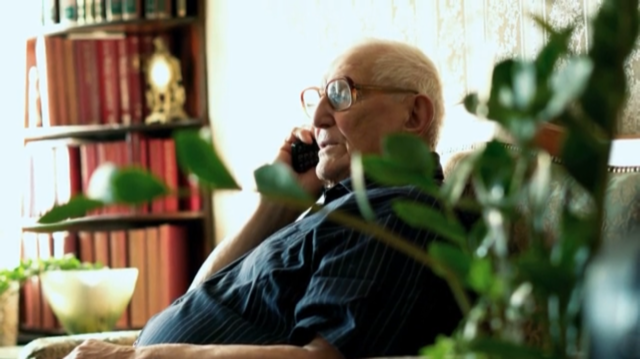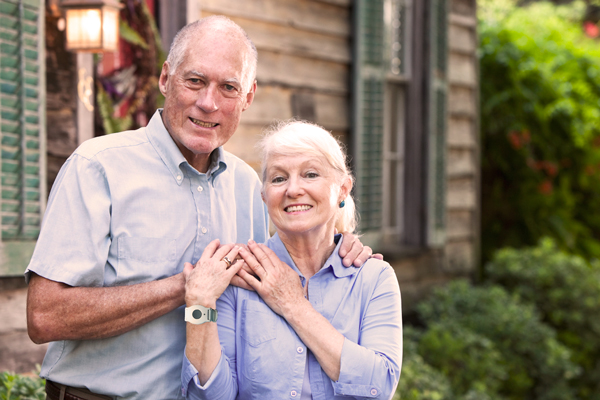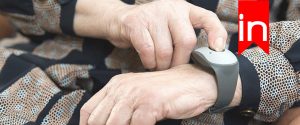
American Association of Retired Persons (AARP) was started in 1958 in Ojai, California, United States, by Ethel Percy Andrus, an indomitable woman who strove to improve the lives of older Americans right through her life from the time she was a young teacher to the time she became a high school principal and even after retirement. The not-for-profit organization has as its mission empowering people to choose how they live as they age. Serving nearly 38 million elders, it helps them enhance their quality of life, by fighting for and equipping each one of them to live their best life.
Medical Alert Systems — Benefits
The elderly face several challenges in their day-to-day life. Failing health, comorbidities and loneliness lead to situations where they need constant attention. They are more prone to falls, which can be dangerous due to weaker bones that are liable to break more easily and lead to other complications. According to a report by NCOA (National Council on Aging), the US Centers for Disease Control and Prevention observes that every year one in four Americans aged 65+ falls. While an older adult undergoes emergency treatment for a fall every 11 seconds, an older adult dies every 19 minutes because of it. This makes falls a major cause of death as well as leading to nonfatal trauma-related hospital admissions among older adults. Since adults fear a fall, they also tend to restrict their movements and socialization that can further impact their physical and mental health. Other medical conditions such as poor cardiac health, stroke, Parkinson’s and the like can also be reasons that prevent the senior citizens from venturing out or very far from home.
AARP believes that rather than narrowing their spheres because of fear of a fall or any medical emergency, they can be provided with solutions such as a medical alert system that will make them confident of accessing help in such situations. All the older adult needs to do is press a button to connect to emergency services and get timely help.

How to Choose a Medical Alert System
Medical alert systems were first released in the mid-1970s. Simple push-button devices, they could be worn on the wrist like a bracelet or around the neck like a locket. A 24-hour call center would be alerted and wireless two-way communication was enabled. Today there are many options available, but they should be evaluated based on the health status of the elderly it is being bought for and their comfort level in being able to use it. From simple alert systems, today the market is flooded with devices connected to smartphones, watches or home security systems. They have a whole lot of features such as GPS, cellular connectivity, fall detection or prevention, in-home health monitors, activity trackers, movement sensors and so on, and not necessarily connected to an emergency call center. This makes it essential to understand the health condition of the elderly person it is being bought for and the purpose it needs to serve. Some of the features that would be good to have include:- Fall detection
- Seek help by connecting to a response center
- Monitor vital parameters
- Enable reminders for medication
- Be GPS enabled to track location
- Motion detectors to monitor movement
- Daily check-in services electronically or through phone calls
- Tracking activity and fitness goals
- Enabling connecting with family virtually

Does AARP have Medical Alert Systems?
The short answer is no. AARP does not endorse any specific brands or carry any medical alert systems. However, members of AARP can get discounts on two of the medical alert systems.- Philips Lifeline: Members can get a discount of 15% on the medical alert service as well as free shipping and activation. Choose the service option that fits your needs best. Philips provides 24/7 access.
- GreatCall: Members can get a discount of $60 a year on the Preferred and Ultimate medical alert safety plans on purchasing a Lively Mobile Plus or Lively Wearable2 medical alert device.
AARP’s purpose has been to empower older adults to be able to choose the lifestyle they desire and equip them such that they can lead a good quality of life. However, it cannot be denied that aging brings with it health-related problems that can be debilitating and restricting. Prevention is better than cure, and today, technology enables us to be safe and adventurous at the same time.
A simple device like a medical alert system can help the elderly to move a little more freely either indoors or outdoors with emergency support just a button click away. The market is filled with many options, and so, choosing the one that is right for the user is important. Without being swayed by promises that could well be false, do thorough research and invest in one that can truly help the older adult when they are in need. Check with peers and your local support systems before buying one, or just click on either one of the systems available through AARP to reap the benefits.
Related Posts

Medical Alert Bracelet For Breast Cancer Patients: Essential Information for Emergencies

Medical Alert Watch With No Monthly Fee

Why Seniors Living At Home Need a Medical Alert System

Activities of Daily Living: A Comprehensive Guide to Maintaining Independence
Sponge Bath: Bed Bathing Seniors


LifeCall is an American company with a long history of providing excellent monitoring services and efficient emergency alert systems to health care facilities catering to the elderly and individuals for use both indoors and on the go all over the United States.
Call Now
1 (866) 225-1295
Read The Review


